Wellbeing and Pastoral Care

Student learning is not just about academic outcomes. It is also ensuring that the wellbeing needs of each student are recognised and met. Wellbeing refers to what is intrinsically valuable relative to someone. So, the wellbeing of a person is what is ultimately good for this person and what is in the self-interest of this person. Wellbeing is important because students who have higher levels of wellbeing are more likely to have higher achievement outcomes at school, better mental health and a more social and responsible lifestyle.
At Canterbury Girls’ Secondary College, there is a focus on social and emotional wellbeing as well as learning outcomes. The College is a member of the Respectful Relationships program through the Department of Education and Training. This program is a whole-school approach to ensure that all members of the school community model respectful interactions. It ensures all aspects of a school’s operation and culture are underpinned by respect and equality. Canterbury Girls’ Secondary College is also an accredited member of the E-Smart program which recognises the important role schools play in preparing students to confidently navigate a digital world and supports the implementation of evidence-based policies and practices to promote cyber safety and assist in the prevention of cyber bullying.
Wellbeing Curriculum Programs
Research shows that when students feel they are part of a school community, they will actively engage in academic and non-academic activities,
Canterbury Girls’ Secondary College has embedded within the curriculum program, subjects which build student resilience, improve study habits and facilitate connections across the College. These programs contribute to a sense of wellbeing for all students.
Year 7 and 8 students undertake Personal Development. This subject includes a Health component which includes drug education, puberty, respectful relationships, and safe use of technology. Students also develop effective study skills, and critical thinking skills, with an emphasis on growth mindset and mindfulness.
At Year 9 and 10, students undertake further health studies, getting to know themselves, their values, and societal values and becoming more familiar with decision making processes. There is a focus on the health and wellbeing of individuals, considering the positive and negative factors that impact positive wellbeing.
Camps
-
Students have access to year level camps and curriculum-based camps. Camps include local camps within Victoria and international camps including France and Japan as well as a ski camp. Camps provide opportunities for students to develop social and personal skills, working in teams, interacting with others, developing resilience and problem-solving skills. They also enable connections with other members of the school community.
Careers Planning
-
All students have access to a trained Careers counsellor who works with students individually or in small groups to assist with planning regarding subject choice and post-schooling options.
Co-curricular Program
-
The very strong co-curricular program provides extensive opportunities for students to connect across the school through sport, music and House activities as well as providing leadership opportunities for students.
Wellbeing and Pastoral Care
Wellbeing and pastoral care programs help students with their personal needs and problems, and provide support as needed.
The Wellbeing team in the College comprises two trained social workers who provide one on one and small group counselling. Other members of the team include year level co-ordinators, Heads of the sub-schools and the two Assistant Principals.
Within the sub-schools, each student has a designated teacher they can approach for support and who monitors their wellbeing and academic progress.
The College runs a number of programs to support individual and groups of students.
Year 7 – We recognise that the transition from primary school to secondary school can be quite momentous for many students and have established programs to support Year 7 students.
-
Homeroom teachers – Each Year 7 student has a designated homeroom teacher who also teaches them a curriculum program. Students meet with their homeroom teacher at the start of every day and students can approach them with any issues.
-
Big Sister Little Sister program – Each Year 7 student has a Year 12 “big sister” with whom they met across the year, attending social events, and participating in programs together. This program aims to provide connections between junior and senior students and provides Year 7 students with an older student contact who they can approach and talk with. The “big sister” also assists in ensuring they know about and become involved in co-curricular activities.
-
Peer Support program – Each Year 7 student has a Year 10 peer support leader who works with small groups of students, running transition activities about friendship, understanding secondary school, developing study strategies, co-curricular involvement, and using the homework diary. The program aims to build the self-esteem and confidence of younger students by connecting them through friendship and structured activities with older students, resulting in a more cohesive and friendly school community.
-
Anti-bullying programs – Students participate in programs examining the issue of bullying in schools and the effect of bullying on the victim and society as a whole.
Year 8
-
Buddy Program – This program runs at Year 8 to Year 12 and pairs each new student with a buddy who is in their class. The buddy assists with settling into and understanding the school.
-
Responsibility program – Students participate in a series of workshops and performances designed to highlight the complex issues of bullying, harassment and belonging, and provide strategies for responding if needed.
-
Write a book in a day program – This event provides an opportunity for students to extend themselves in a cross curricular activity which fosters teamwork, cooperation and creativity and involves them in a wider community program.
-
Students participate as a year level in physical events which provide an opportunity for the Year 8 students to work across their classes and to build both engagement and relationships with each other and their teachers.
Year 9
-
Careers program – This program explores the world of work and preparing for job applications and interviews.
-
Urban Week – The four-day co-curricular event has a focus on both core and elective subjects in the Year 9 program, and an emphasis on familiarity with the city centre, problem solving, teamwork and independent learning.
-
Community service – Provides an opportunity for Year 9 students to volunteer their time at a range of childcare and aged care facilities in the Boroondara area. It fosters new skills and knowledge, a sense of achievement and fulfilment and a connection to the community.
Year 10
-
Study skills sessions – The purpose of these seminars is to help students to make decisions about their educational and vocational pathways and to write measurable goals and action plans to get there.
-
Pathways days – Through visits to tertiary institutions and presentations from various speakers, the program aims to ensure that students are offered maximum opportunities to plan their post-secondary plans, are provided a sequential series of pathways planning activities and are ready to apply for part time jobs if they wish.
-
Driving programs – These programs offer information and practical ideas for students on how to use the learning to drive period, get 120 hours of practice and become safe and responsible drivers.
Year 11 and 12
-
Study skills programs – These programs assist students to refine their study habits and provide guidance for Year 11 and Year 12 students to help them to cope with their final year of school and their preparation for the end of year examinations.
-
Safety programs – These programs engage students’ critical thinking skills and strengthen their personal and social capabilities, preparing students for the various situations they will face at events out of school. Enhancing student safety is the primary aim.
Wellbeing and Pastoral Care

Student learning is not just about academic outcomes. It is also ensuring that the wellbeing needs of each student are recognised and met. Wellbeing refers to what is intrinsically valuable relative to someone. So, the wellbeing of a person is what is ultimately good for this person and what is in the self-interest of this person. Wellbeing is important because students who have higher levels of wellbeing are more likely to have higher achievement outcomes at school, better mental health and a more social and responsible lifestyle.
At Canterbury Girls’ Secondary College, there is a focus on social and emotional wellbeing as well as learning outcomes. The College is a member of the Respectful Relationships program through the Department of Education and Training. This program is a whole-school approach to ensure that all members of the school community model respectful interactions. It ensures all aspects of a school’s operation and culture are underpinned by respect and equality. Canterbury Girls’ Secondary College is also an accredited member of the E-Smart program which recognises the important role schools play in preparing students to confidently navigate a digital world and supports the implementation of evidence-based policies and practices to promote cyber safety and assist in the prevention of cyber bullying.
Wellbeing Curriculum Programs
Research shows that when students feel they are part of a school community, they will actively engage in academic and non-academic activities,
Canterbury Girls’ Secondary College has embedded within the curriculum program, subjects which build student resilience, improve study habits and facilitate connections across the College. These programs contribute to a sense of wellbeing for all students.
Year 7 and 8 students undertake Personal Development. This subject includes a Health component which includes drug education, puberty, respectful relationships, and safe use of technology. Students also develop effective study skills, and critical thinking skills, with an emphasis on growth mindset and mindfulness.
At Year 9 and 10, students undertake further health studies, getting to know themselves, their values, and societal values and becoming more familiar with decision making processes. There is a focus on the health and wellbeing of individuals, considering the positive and negative factors that impact positive wellbeing.
Camps
Students have access to year level camps and curriculum-based camps. Camps include local camps within Victoria and international camps including France and Japan as well as a ski camp. Camps provide opportunities for students to develop social and personal skills, working in teams, interacting with others, developing resilience and problem-solving skills. They also enable connections with other members of the school community.
Careers Planning
All students have access to a trained Careers counsellor who works with students individually or in small groups to assist with planning regarding subject choice and post-schooling options.
Co-curricular Program
The very strong co-curricular program provides extensive opportunities for students to connect across the school through sport, music and House activities as well as providing leadership opportunities for students.
Wellbeing and Pastoral Care
Wellbeing and pastoral care programs help students with their personal needs and problems, and provide support as needed.
The Wellbeing team in the College comprises two trained social workers who provide one on one and small group counselling. Other members of the team include year level co-ordinators, Heads of the sub-schools and the two Assistant Principals.
Within the sub-schools, each student has a designated teacher they can approach for support and who monitors their wellbeing and academic progress.
The College runs a number of programs to support individual and groups of students.
Year 7 – We recognise that the transition from primary school to secondary school can be quite momentous for many students and have established programs to support Year 7 students.
-
Homeroom teachers – Each Year 7 student has a designated homeroom teacher who also teaches them a curriculum program. Students meet with their homeroom teacher at the start of every day and students can approach them with any issues.
-
Big Sister Little Sister program – Each Year 7 student has a Year 12 “big sister” with whom they met across the year, attending social events, and participating in programs together. This program aims to provide connections between junior and senior students and provides Year 7 students with an older student contact who they can approach and talk with. The “big sister” also assists in ensuring they know about and become involved in co-curricular activities.
-
Peer Support program – Each Year 7 student has a Year 10 peer support leader who works with small groups of students, running transition activities about friendship, understanding secondary school, developing study strategies, co-curricular involvement, and using the homework diary. The program aims to build the self-esteem and confidence of younger students by connecting them through friendship and structured activities with older students, resulting in a more cohesive and friendly school community.
-
Anti-bullying programs – Students participate in programs examining the issue of bullying in schools and the effect of bullying on the victim and society as a whole.
Year 8
-
Buddy Program – This program runs at Year 8 to Year 12 and pairs each new student with a buddy who is in their class. The buddy assists with settling into and understanding the school.
-
Responsibility program – Students participate in a series of workshops and performances designed to highlight the complex issues of bullying, harassment and belonging, and provide strategies for responding if needed.
-
Write a book in a day program – This event provides an opportunity for students to extend themselves in a cross curricular activity which fosters teamwork, cooperation and creativity and involves them in a wider community program.
-
Students participate as a year level in physical events which provide an opportunity for the Year 8 students to work across their classes and to build both engagement and relationships with each other and their teachers.
Year 9
-
Careers program – This program explores the world of work and preparing for job applications and interviews.
-
Urban Week – The four-day co-curricular event has a focus on both core and elective subjects in the Year 9 program, and an emphasis on familiarity with the city centre, problem solving, teamwork and independent learning.
-
Community service – Provides an opportunity for Year 9 students to volunteer their time at a range of childcare and aged care facilities in the Boroondara area. It fosters new skills and knowledge, a sense of achievement and fulfilment and a connection to the community.
Year 10
-
Study skills sessions – The purpose of these seminars is to help students to make decisions about their educational and vocational pathways and to write measurable goals and action plans to get there.
-
Pathways days – Through visits to tertiary institutions and presentations from various speakers, the program aims to ensure that students are offered maximum opportunities to plan their post-secondary plans, are provided a sequential series of pathways planning activities and are ready to apply for part time jobs if they wish.
-
Driving programs – These programs offer information and practical ideas for students on how to use the learning to drive period, get 120 hours of practice and become safe and responsible drivers.
Year 11 and 12
-
Study skills programs – These programs assist students to refine their study habits and provide guidance for Year 11 and Year 12 students to help them to cope with their final year of school and their preparation for the end of year examinations.
-
Safety programs – These programs engage students’ critical thinking skills and strengthen their personal and social capabilities, preparing students for the various situations they will face at events out of school. Enhancing student safety is the primary aim.
Curriculum Overview
Canterbury Girls’ Secondary College offers a strong academic environment in order for students to excel and achieve their best with an emphasis on each student functioning as an individual in attaining excellence. Students are held accountable for their learning and regular feedback is provided to parents.
The curriculum program provides:
-
A broad range of quality educational programs tailored to affirm students in their learning and allows them to become effective members of a society facing rapid technological change
-
Challenging and rigorous programs that expose students to a range of learning experience
-
An emphasis on catering for the various learning styles of girls and the development of metacognitive skills
- A learning environment based on co-operation, self-discipline and concern for others
- Course and careers counselling programs tailored to expose students to all the opportunities open to them
- An extensive co-curricular program to foster the development of the whole person
- Transition programs for students entering Year 7, VCE studies and tertiary studies
- Examinations from Year 10 as preparation for VCE Units 3 and 4
- Opportunities for Year 10 students to undertake VCE Unit 1 and 2 studies, and Year 11 students to undertake VCE Unit 3 and 4 studies
- Participation in University Enhancement studies
Curriculum Overview
Canterbury Girls’ Secondary College offers a strong academic environment in order for students to excel and achieve their best with an emphasis on each student functioning as an individual in attaining excellence. Students are held accountable for their learning and regular feedback is provided to parents.
The curriculum program provides:
-
A broad range of quality educational programs tailored to affirm students in their learning and allows them to become effective members of a society facing rapid technological change
-
Challenging and rigorous programs that expose students to a range of learning experience
-
An emphasis on catering for the various learning styles of girls and the development of metacognitive skills
- A learning environment based on co-operation, self-discipline and concern for others
- Course and careers counselling programs tailored to expose students to all the opportunities open to them
- An extensive co-curricular program to foster the development of the whole person
- Transition programs for students entering Year 7, VCE studies and tertiary studies
- Examinations from Year 10 as preparation for VCE Units 3 and 4
- Opportunities for Year 10 students to undertake VCE Unit 1 and 2 studies, and Year 11 students to undertake VCE Unit 3 and 4 studies
- Participation in University Enhancement studies
Curriculum Resources 2024
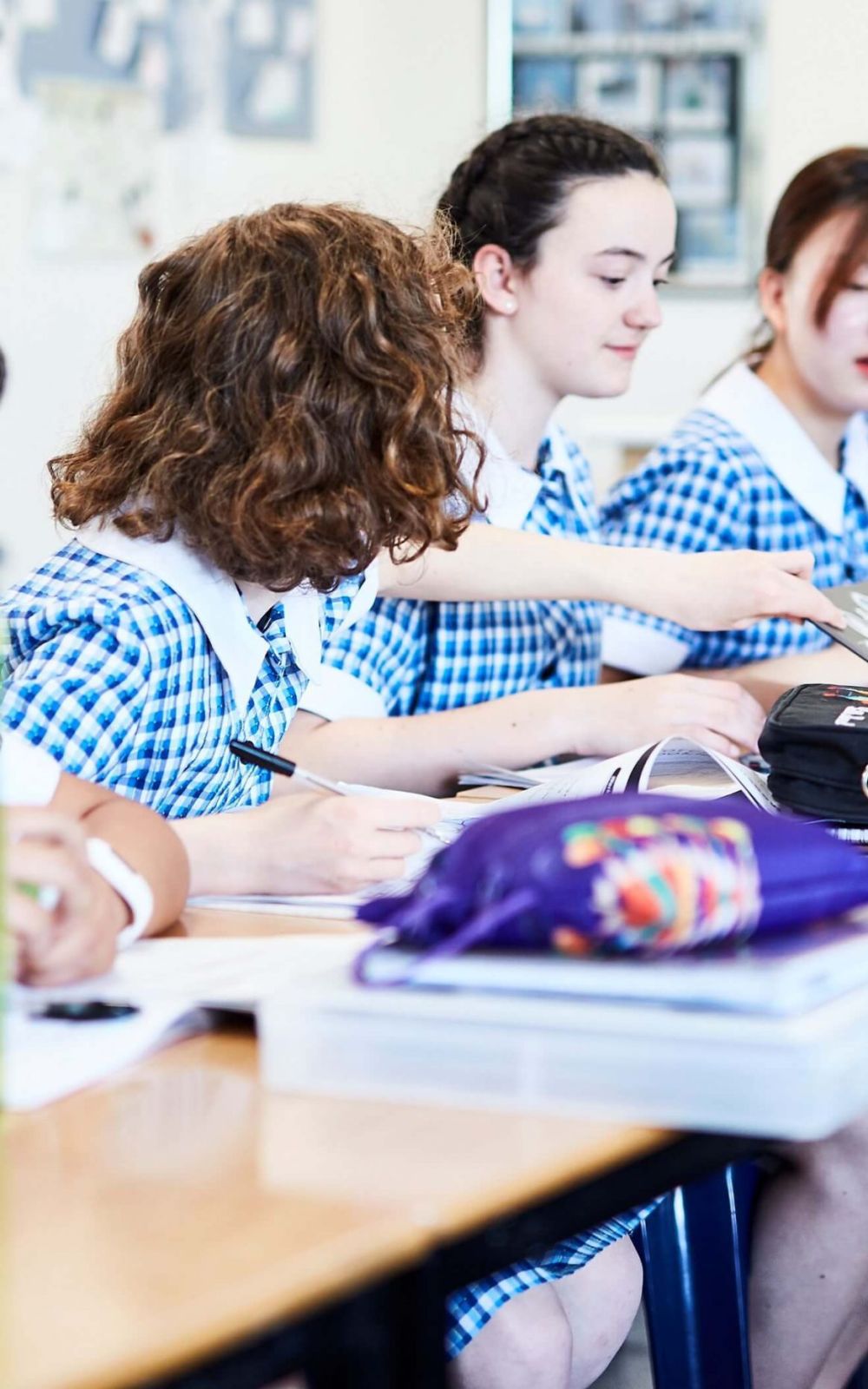
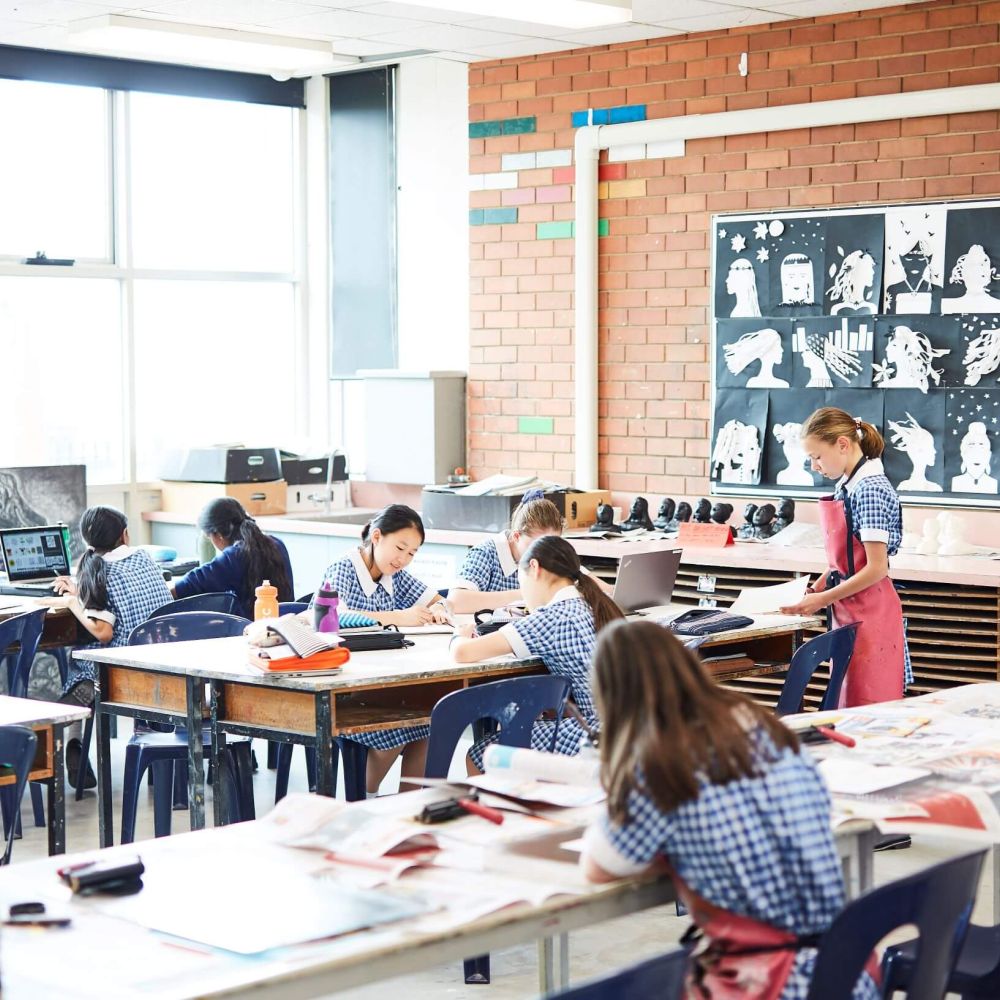
Curriculum Resources 2024
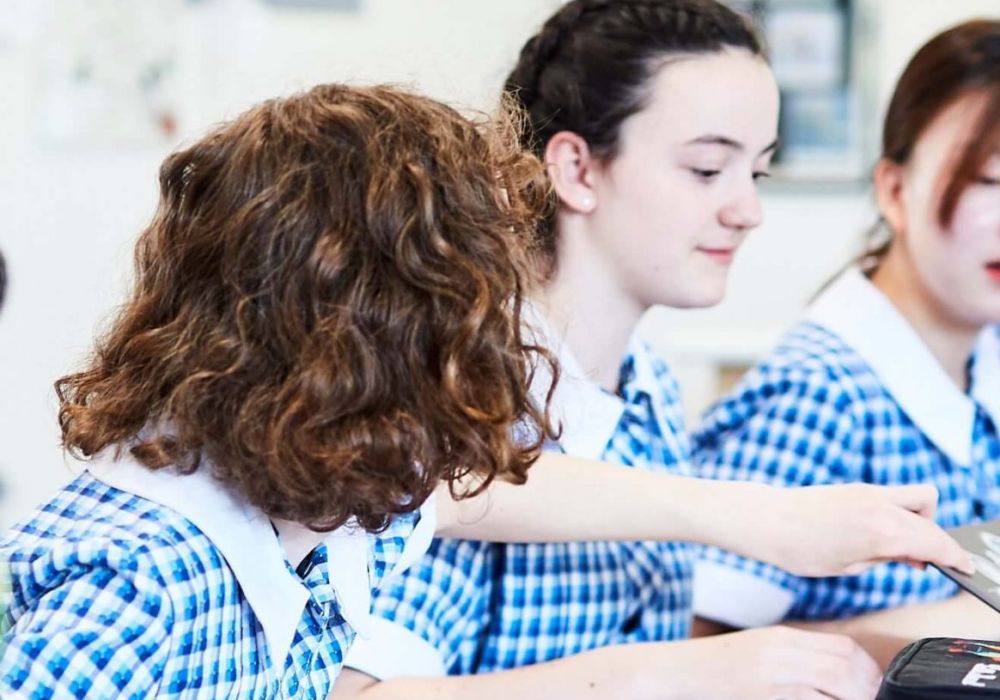
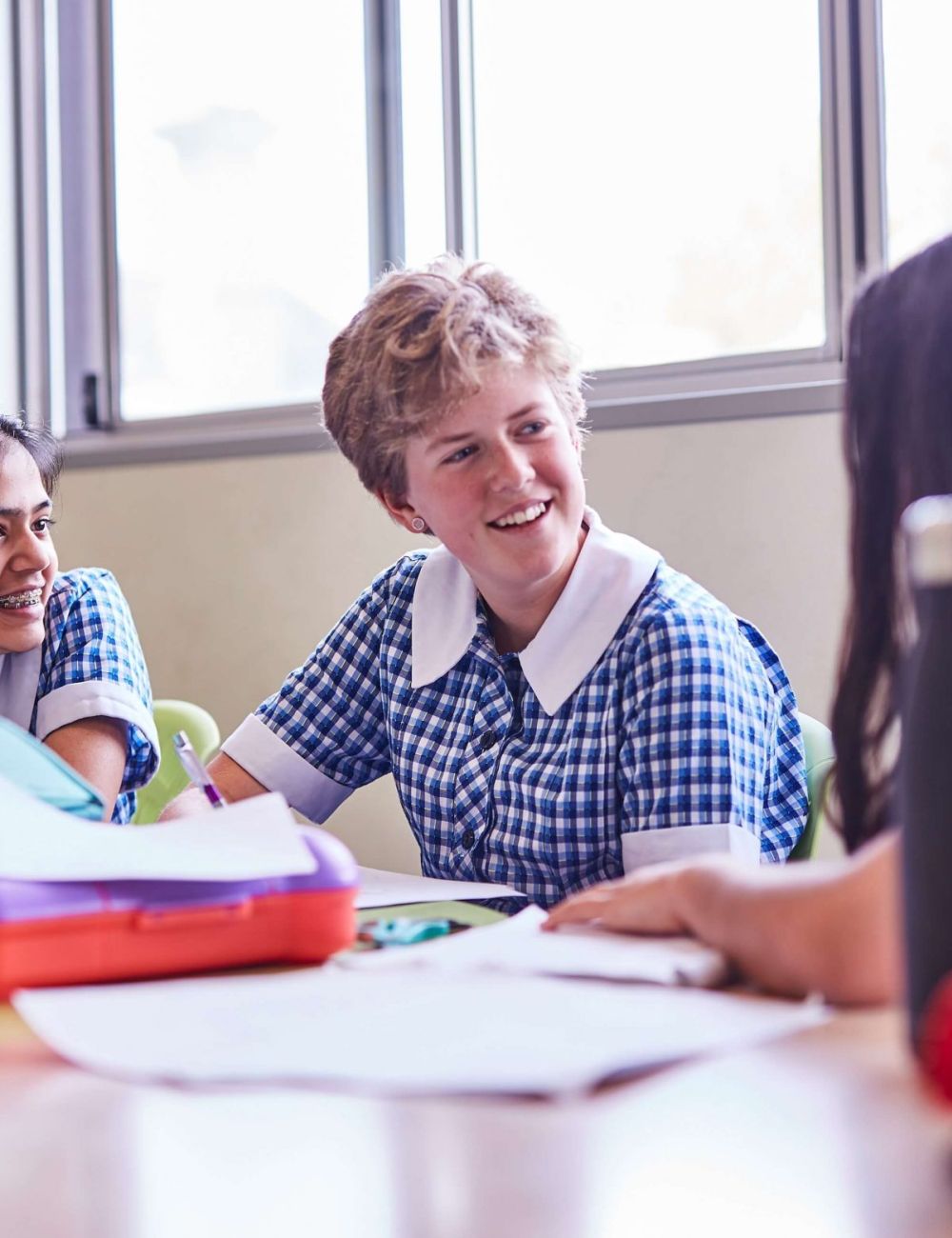
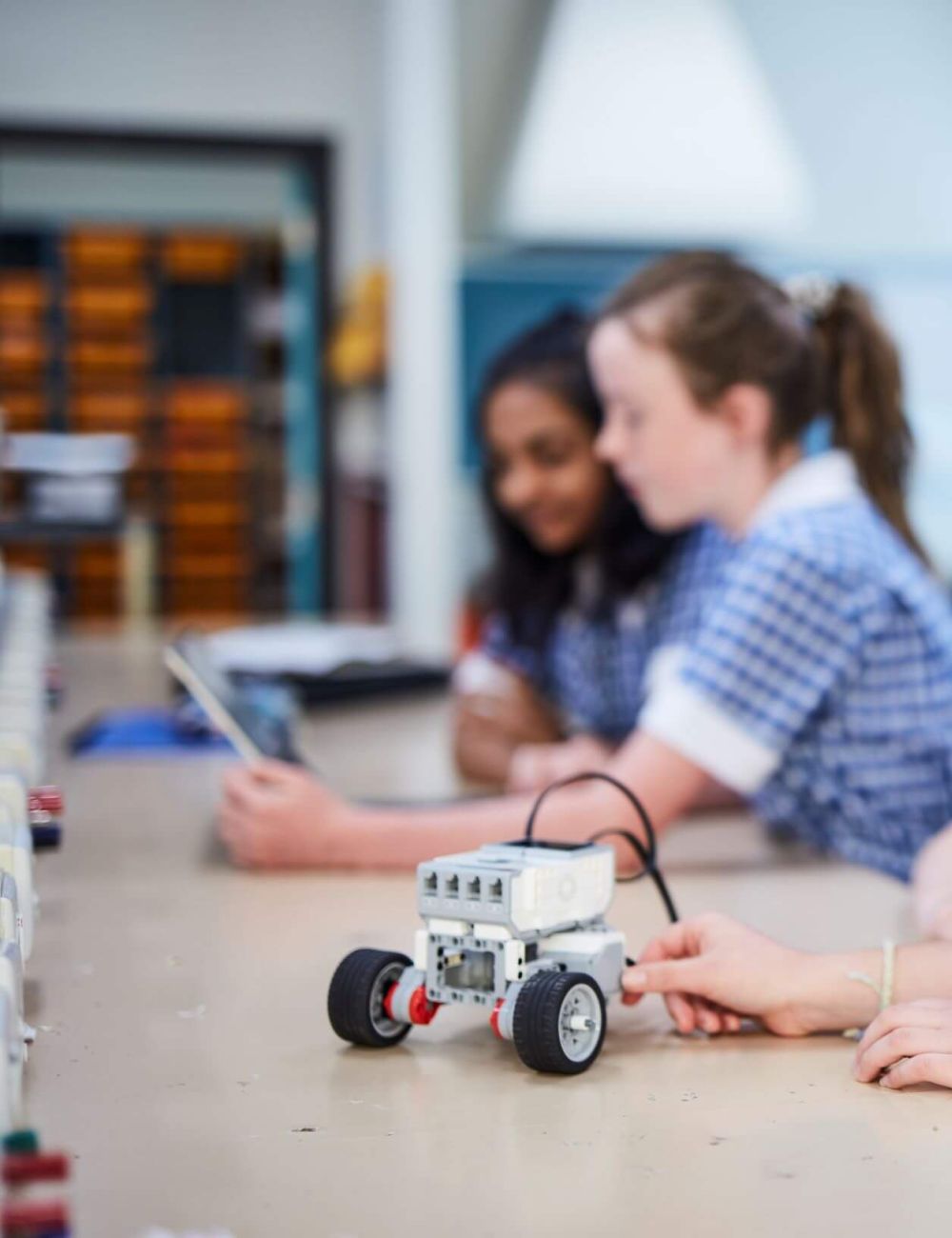
SEAL Program
The SEAL program differs from the mainstream program by providing a faster paced curriculum with the opportunity to work on more abstract, complex and in-depth material.
Learning in core subjects will be accelerated for these students and it is anticipated that most students will complete Years 7-10 in three years, giving them an extended range of options for their final years of schooling.
Students may choose to take additional VCE units to provide breadth or undertake VCE Extension studies, which will allow them to complete one or more university subjects as part of their VCE.
For more information about the program, please contact Georgina Padula on 9831 8606.
SEAL Program

The SEAL program differs from the mainstream program by providing a faster paced curriculum with the opportunity to work on more abstract, complex and in-depth material.
Learning in core subjects will be accelerated for these students and it is anticipated that most students will complete Years 7-10 in three years, giving them an extended range of options for their final years of schooling.
Students may choose to take additional VCE units to provide breadth or undertake VCE Extension studies, which will allow them to complete one or more university subjects as part of their VCE.
For more information about the program, please contact Georgina Padula on 9831 8606.
International Students
The International Student Program expands students’ awareness of other cultures and in doing so enriches us as well as providing international students with an understanding of Australian life. The broad co-curricular program provides many opportunities for all students to interact with each other beyond the classroom. In doing so, relationships and understanding are strengthened.
For further information about the International Student Program at Canterbury Girls’ Secondary College, please contact Jim Ouliaris at jou@cgsc.vic.edu.au.
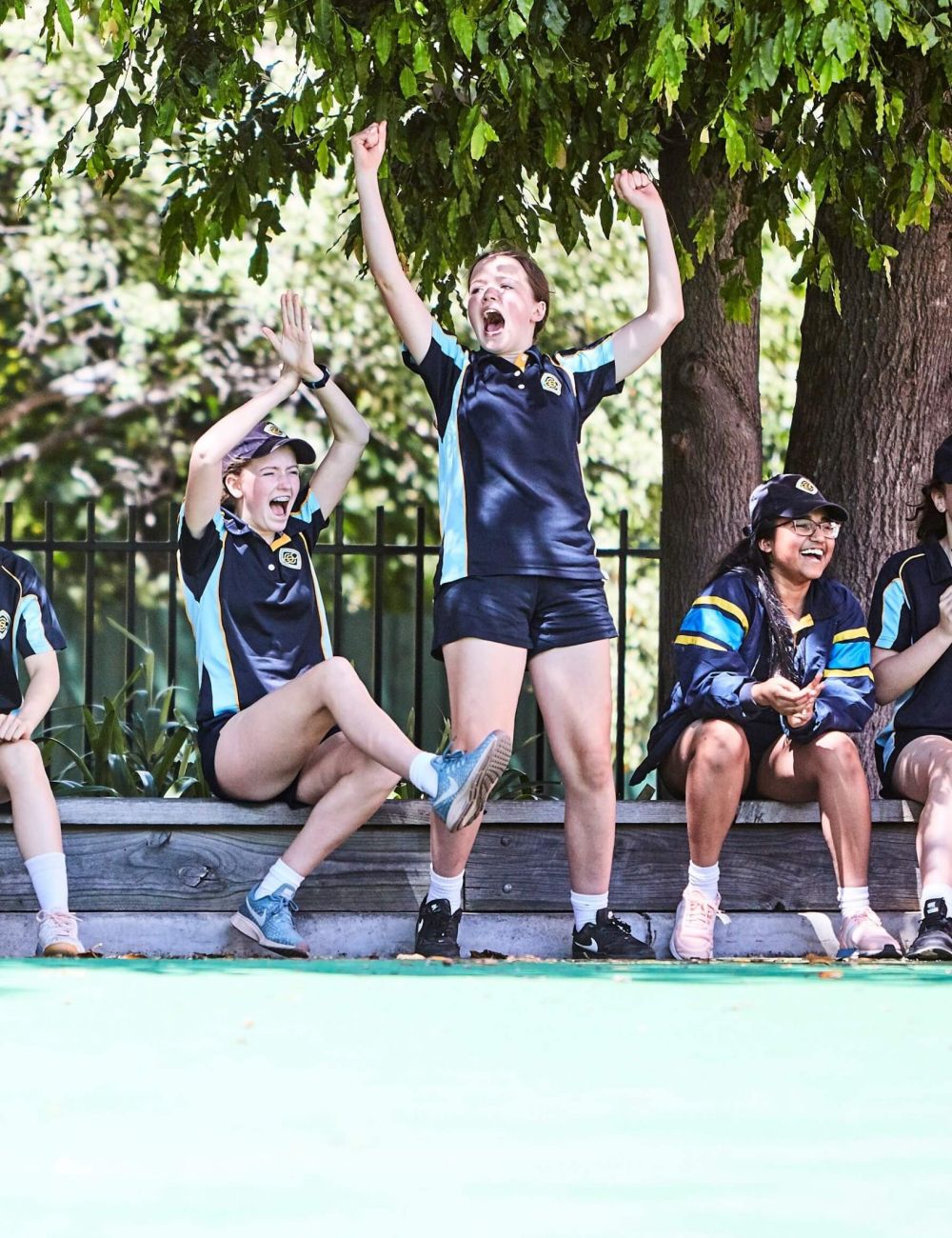
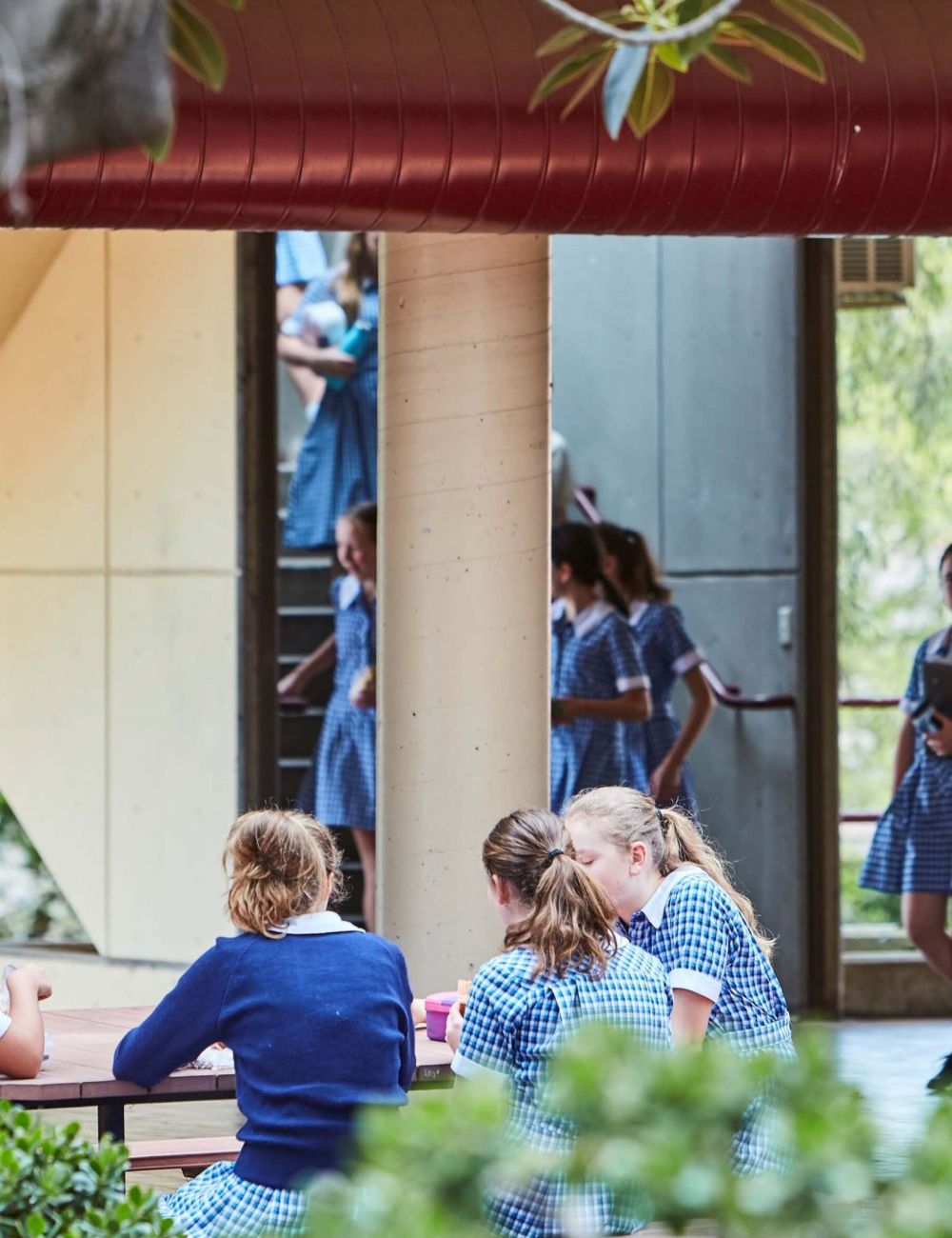
For further information about studying in Victoria, and to apply to study in Victoria, see http://www.study.vic.gov.au.
Please note that Canterbury Girls’ Secondary College only accepts International students who meet the following criteria:
-
Enrolling into Years 10, 11 or 12
-
Are living in Australia with a Parent or Legal Custodian or DIBP Approved Relative – The parent nominates a Department of Immigration and Border Protection (DIBP) approved relative to provide accommodation, welfare and arrival support.
-
Have a level of English proficiency
International Students
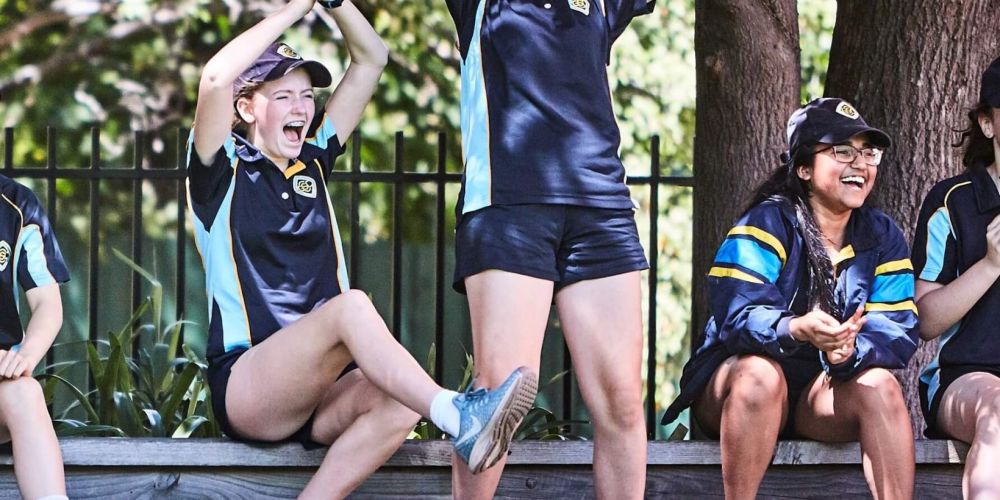
The International Student program expands students’ awareness of other cultures and in doing so enriches us as well as providing international students with an understanding of Australian life. The broad co-curricular program provides many opportunities for all students to interact with each other beyond the classroom. In doing so, relationships and understanding are strengthened.
For further information about the International Student Program at Canterbury Girls’ Secondary College, please contact Jim Ouliaris at jou@cgsc.vic.edu.au.
For further information about studying in Victoria, and to apply to study in Victoria, see http://www.study.vic.gov.au.
Please note that Canterbury Girls’ Secondary College only accepts International students who meet the following criteria:
- Enrolling into Years 10, 11 or 12
- Are living in Australia with a Parent or Legal Custodian or DIBP Approved Relative – The parent nominates a Department of Immigration and Border Protection (DIBP) approved relative to provide accommodation, welfare and arrival support.
- Have a level of English proficiency
